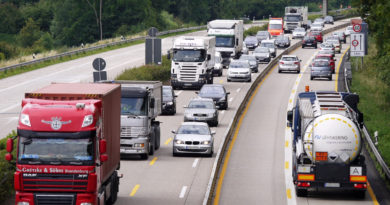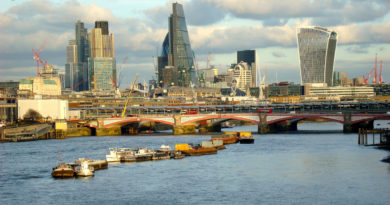From passports to insurance and pets: 14 ways to prepare for no-deal Brexit [updated]
The British government has published a series of papers to help prepare in case the UK leaves the European Union without an agreement. The government says that both the UK and the EU “continue to work hard to seek a positive deal” but it is necessary to “prepare for all eventualities”. From driving licences to divorces, here is how individuals could be impacted and what they can do about it.
1) Passports. British citizens might need a visa to travel to EU countries if there is no Brexit agreement. Passports of ‘third country nationals’ (citizens from outside the EU) travelling to the Schengen area must have been issued within the last 10 years on the date of arrival and have at least 3 months’ validity from the date of departure. The UK government recommends British citizens to check their passport validity, and that of their children, and if necessary renew them. For EU countries that are not part of the Schengen area (Romania, Bulgaria, Croatia and Cyprus), there may be different requirements. Nothing changes for Ireland.
2) Driving licences. Driving licences issued in the UK may no longer be valid in the EU after Brexit. In this case, an International Driving Permit (IDP) will be necessary, together with the British licence, to drive or rent a car in the EU. Different EU countries require different IDP versions. People moving from the UK to an EU country might no longer have the automatic right to exchange their driving licence for a local one and, depending on domestic laws, a new driving test may be needed. The UK does not plan to change arrangements for holders of EU driving licences who are visiting or are living in the UK: they can drive on their EU licence until it expires, or until they reach the age of 70, or until 3 years after they move to the UK. People who have exchanged the UK driving licence with an EU one will be able to exchange it back, if they return to live in the UK.
3) Flights, trains and buses. If there is no deal, UK and EU airlines would lose the automatic right to operate air services between the UK and the EU without seeking advance permission from national authorities. EU-licensed airlines would lose the ability to operate within the UK (e.g. from London to Edinburgh), and UK-licensed airlines would lose the ability to operate within the EU (e.g. from Milan to Paris). “In this scenario the UK would envisage granting permission to EU airlines to continue to operate,” says the government. “We would expect EU countries to reciprocate in turn”. If such permissions are not granted, however, “there could be disruption to some flights”. The British government plans to follow a similar approach for international coach and train services. As regards international rail transport (e.g. the Eurostar), the official technical notice says that passengers “are responsible for ensuring that their insurance and ticket terms and conditions are sufficient to cover possible disruption.”
4) Car insurance. To ease free movement, EU directives abolished green cards as proof of third party motor insurance when travelling in Europe. But without a deal, UK motorists travelling to EU countries with their vehicle may need again to request a green card from their insurance (usually provided for free). In alternative, they would need to purchase a temporary local insurance for the country they are entering. EU motorists travelling in the UK may be required to carry a green card as well. Always check before departure.
5) Pets. Owners of dogs, cats and ferrets can travel with their animals within EU countries, provided they hold a valid EU pet passport. In the case of a no deal, the requirements for documents and health checks would differ depending on what category of third country the UK will become. Health certificates might be needed for each trip to the EU (or vice versa).
6) Mobile roaming charges. Last year roaming charges withing the EU were abolished. In the future it will be up to UK mobile operators to decide whether or not to continue this policy. Differences may emerge depending on packages and countries that are covered. The government plans to establish a financial limit on mobile data usage while abroad (45 GBP per monthly billing period) and to ensure consumers receive alerts at 80% and 100% of data usage. It will be important to check conditions with operations. The government warns especially consumers at the border between Northern Ireland and Ireland, as the mobile operator may change automatically if the signal from across the border is stronger.
7) Banking. In case of no deal, the ‘passporting’ system allowing financial firms to operate across Europe with the license issued by a country of the European Economic Area (EEA) will no longer apply in the UK. For UK-based customers who access banking, insurance, investment funds and other financial services with EEA firms, a temporary permissions regime has been put in place for up to three years. But without a similar provision from the EU, customers of UK firms ‘passporting’ into the European Economic Area may lose access to their services.
8) Consumer protection. The UK will transfer EU rules on consumer protection into UK law, so nothing will change in principle for people buying in the UK. There may be differences, however, when buying goods and services from EU countries. The government note recommends to check the terms of consumer protection offered by the seller and applicable in that country. In the case of no deal, British consumers would need to seek redress through the courts of that state rather than in the UK (and vice versa for EU consumers buying in the UK). If a UK court makes a judgement on a cross-border case, its enforcement may be more difficult. Advice is available from the UK’s European Consumer Centre.
9) Geo-blocking. A new EU regulation applicable from December 3 prohibits the onlline discrimination of EU consumers on the basis of their nationality or place of residence. In essence, traders cannot block or redirect a website based on the user’s location. The UK does not plan to apply enforce these rules, so “a UK trader would be able to offer different terms to a UK customer compared to a French customer”. But UK traders operating in the EU will be bound by these provisions when dealing with EU customers.
10) Professional qualifications. An EU directive allows the recognition of professional qualifications in the countries of the European Economic Area (EEA) other than that in which the qualification was obtained. The directive applies to regulated professions (database) and includes rules for the recognition of qualifications obtained outside Europe too. If there isn’t a deal, this system will no longer apply in the UK, including for UK nationals with EEA qualifications. According to the government notice, for EEA professionals already established in the UK, recognition decisions will remain valid. EEA professionals who have already applied for a recognition decision should be able to obtain it in line with the EU directive. EEA professionals who have not started the application before Brexit will be subject to future rules. The UK plans to establish a new system to recognise the qualifications of EEA nationals arriving after Brexit. However, this will differ from the current arrangements (e.g. no more automatic recognition nor temporary access to regulated activities on the basis of a declaration). Individuals with UK qualifications seeking recognition in the EEA should check the policies of the host state. The EU Commission has said that decisions on the recognition of UK qualifications in EU countries before exit day are not affected. Special rules apply for lawyers.
11) Marriages and divorces. EU regulations on family law cooperation cover matrimonial and parental responsibility, child abductions, maintenance decisions and recognition and enforcement of related judgments. In case of no deal, the UK plans to refer instead to the Hague Convention on family law, which covers many of these areas on an international level, as well as the recognition of divorces. The UK plans to replicate these rules for same sex marriages and civil partners. But the government paper says that in certain cases “the interaction between these rules may not be clear and certain [EU] countries may not recognise judgments from UK courts”.
12) Insolvency. Similar difficulties may occur for business insolvency proceedings, making it harder to recover money or assets across borders. The UK plans to retain EU rules where a company or individual is based in the UK, but UK insolvency practitioners “would need to make applications under an EU country’s domestic law in order to have UK orders recognised there”. In certain circumstances, “EU countries may not recognise UK insolvency proceedings,” the government says.
13) Representation in multinational firms. European Works Council, that can be set up to consult employees on issues affecting staff across two or more states of the European Economic Area, will no longer be established in the UK.
14) Funds for students. The UK government is underwriting funds for the student and professional exchange programme Erasmus+ until 2020 and “will engage with member states and key institutions to seek to ensure UK participants can continue with their planned activity” even in the case of a no-deal Brexit. But this will depend on future arrangements.
Claudia Delpero © all rights reserved.
Photo via Pixabay.
This article was published on 16 September and updated on 24 September and 14 October 2018 following the publication of more technical notices.





